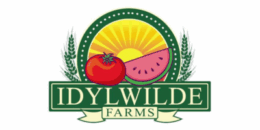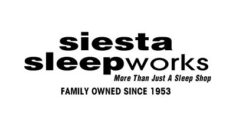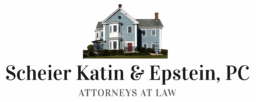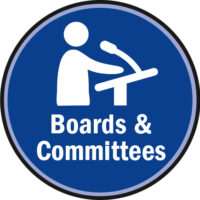The February 5, 2024 Select Board meeting led off with finance and budget talk. Select Board chair Jim Snyder-Grant reported that the Acton Leadership Group had reached a consensus on a $6.6M override amount; he emphasized that the division of override funds between schools and town had not been decided. A multi-year override had been discussed and rejected as perhaps being more than the voters would support. Town manager John Mangiaratti was cautiously optimistic that health care spending might be better controlled in future fiscal years.
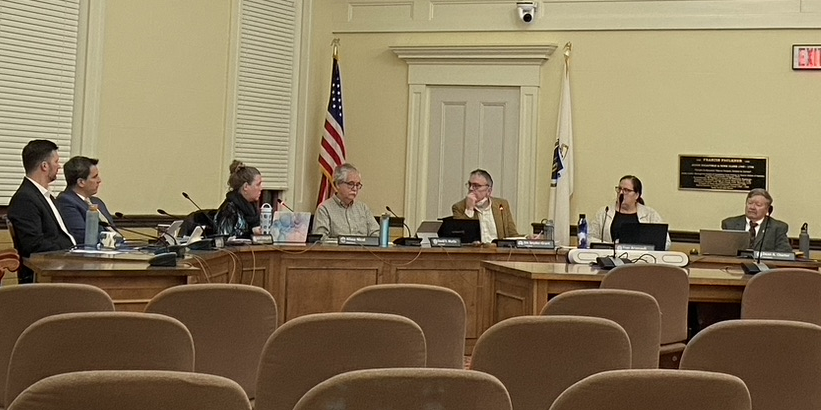
The budget vocabulary was briefly reviewed: a level services budget is that which would be required to maintain the last fiscal year’s municipal services in the coming fiscal year. The ‘A’ budget (reviewed January 22) would be proposed if an override passes at the April 30, 2024 election; the ‘B’ budget presented at this meeting would be proposed if the override fails.
Mr. Mangiaratti’s B budget presentation listed a series of budget cuts for consideration by the Board. Enterprise funds subsidy reductions, cuts to various municipal offices, public safety and capital funding reductions were proposed and discussed by the Board. July 4th fireworks, which require considerable public safety expenditure, might be cut.
The Town contributes annually to a retiree benefits fund, “Other Post-Employment Benefits” or OPEB, whose use is restricted to benefits for retirees and their dependents. The Board agreed unanimously to Mr. Mangiaratti’s proposal to use $300,000 from that fund to offset retiree health insurance benefits. This is like taking equity as cash out of an existing house mortgage; the town will extend its annual contributions to repay the withdrawal from the fund.
Comments from residents, like those of Board members, weighed the merits of the various proposed options. A call-in comment questioned the legal basis for the B budget proposal; and, noting reductions in fire and police funding, suggested the possibility that prominent mention of reductions in public safety spending might be interpreted as an “…attempt to scare people into voting for the override…”; this interpretation was echoed by a second caller.
The Select Board is required to submit its budget proposals to the Finance Committee by March 3, 2024– 60 days before town meeting; the single Select Board meeting scheduled before March 3 is February 26, 2024, so the final language for the override ballot question may be decided at that meeting.
Town construction and MBTA zoning permitting
The MBTA communities zoning proposal that was discussed at the last Select Board meeting will require permitting, and the permitting authority had not yet been defined. Planning director Kristen Guichard reviewed permitting authorities and recommended that the Select Board (rather than the Planning Board or the Board of Appeals) be the permitting authority; a motion to that effect was approved unanimously.
Town Manager Mangiaratti presented a renovation plan for the structure at 17 Woodbury Lane (also known as the Asa Parlin house) that would be funded by grant money. Both the Select Board and public comments were very enthusiastic, and the Board unanimously approved the plan.
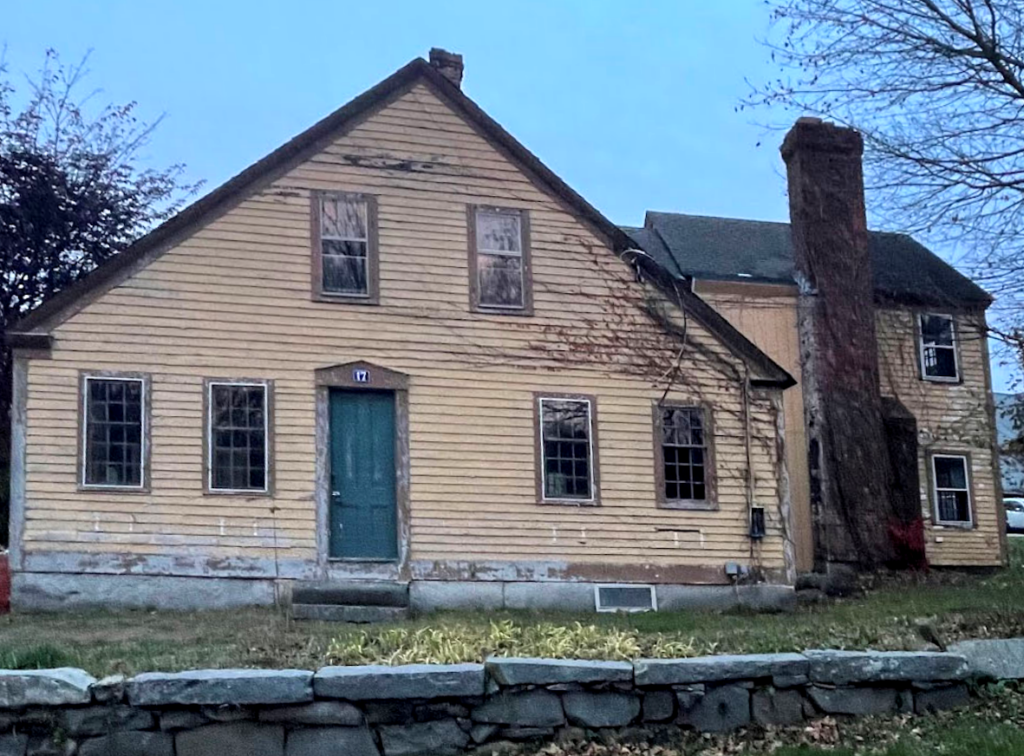
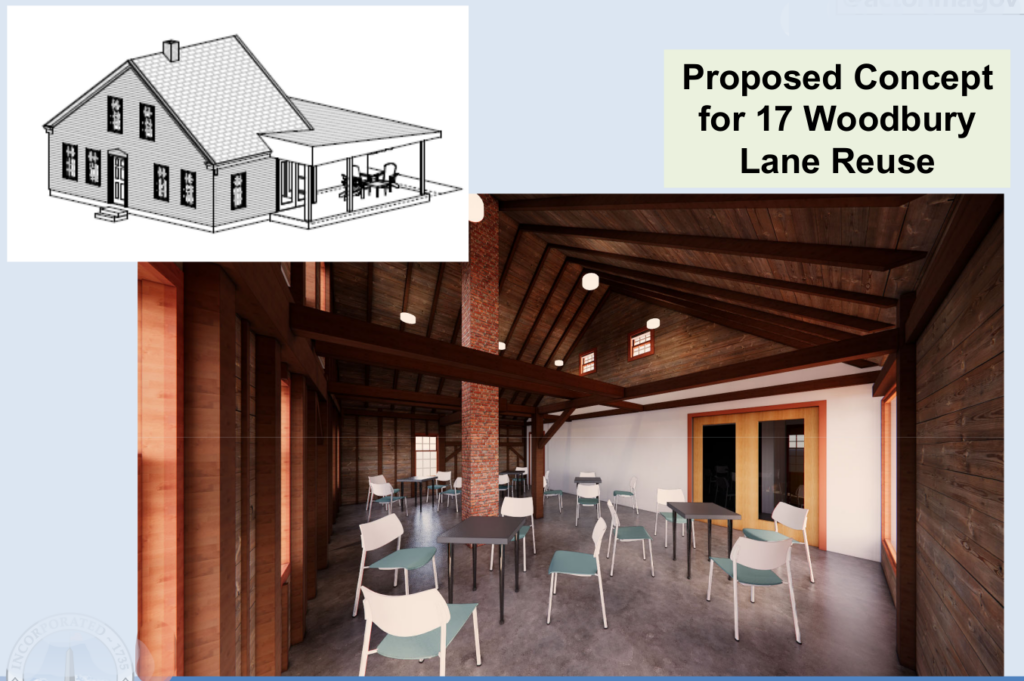
IMAGE: 17 Woodbury Lane as envisioned after renovation, from presentation to Acton Select Board
A proposal to ban the use of gasoline-powered leaf blowers has been brought before the Board at previous meetings, and at this meeting it appeared as a Draft Leaf Blower Control Bylaw. The Board questioned various aspects of the proposal including enforcement mechanisms and the timing of its implementation. The possibility of a Citizen’s Petition, rather than a Board-approved article, was mentioned. The Board did not vote on the current version of the proposal but was open to reconsideration.
Members of the Agricultural Commission spoke on the question of creating a Conservation Restriction (CR) on the Town-owned Morrison Farm, and mentioned that this was the seventh version of a Morrison Farm CR. The following discussion revealed sharp differences of opinion both within the Board and among the public. Select Board member Dean Charter opposed a CR as unnecessarily restrictive of the town’s future options; while Board member Alissa Nicol advocated for a CR, citing habitat protection. Similar differences of opinion were heard in public comments. After fifty minutes of discussion, the Board did not take a vote regarding a Town Meeting Warrant article, and Board member Fran Arsenault agreed to arrange for further public discussion.
Water Resources Advisory Committee Planning
Ron Parenti of the Water Resources Advisory Committee (WRAC) brought a summary of WRAC action items and discussed prioritization of the WRAC activities with the Board. Discussion focused on priority areas of the WRAC’s many responsibilities. As both commercial and residential growth in Acton continues, the WRAC will take increased demand into consideration. Handling of stormwater runoff, the treatment of wastewater, and monitoring of salt levels in water will also be WRAC priorities.
Toward a South Acton Cultural District
After touring the West Concord Junction Cultural District Jin Yang, chair of the Acton-Boxborough Cultural Council (ABCC), Franny Osman, and Alissa Nicol were inspired to imagine a South Acton Cultural District. The Mass Cultural Council (MCC) states, “A Cultural District is an area with a density of cultural facilities, activities, and assets. It is an easy to navigate, compact area that acts as a hub of cultural, artistic, and economic activity and offers a place-based identity to collaborative community initiatives.” Ms. Yang’s presentation included a map of the proposed district, and she outlined the requirements for official cultural district recognition. The proposed district designation would require participation of a town official, and Town Manager Mangiaratti was confident that town staff time could be made available. Mr. Mangiaratti further suggested that the project could integrate into a proposed town economic development plan. The Select Board satisfied a first required step in the process by unanimously approving the project.
Tom Beals is a volunteer writer for the Acton Exchange.


